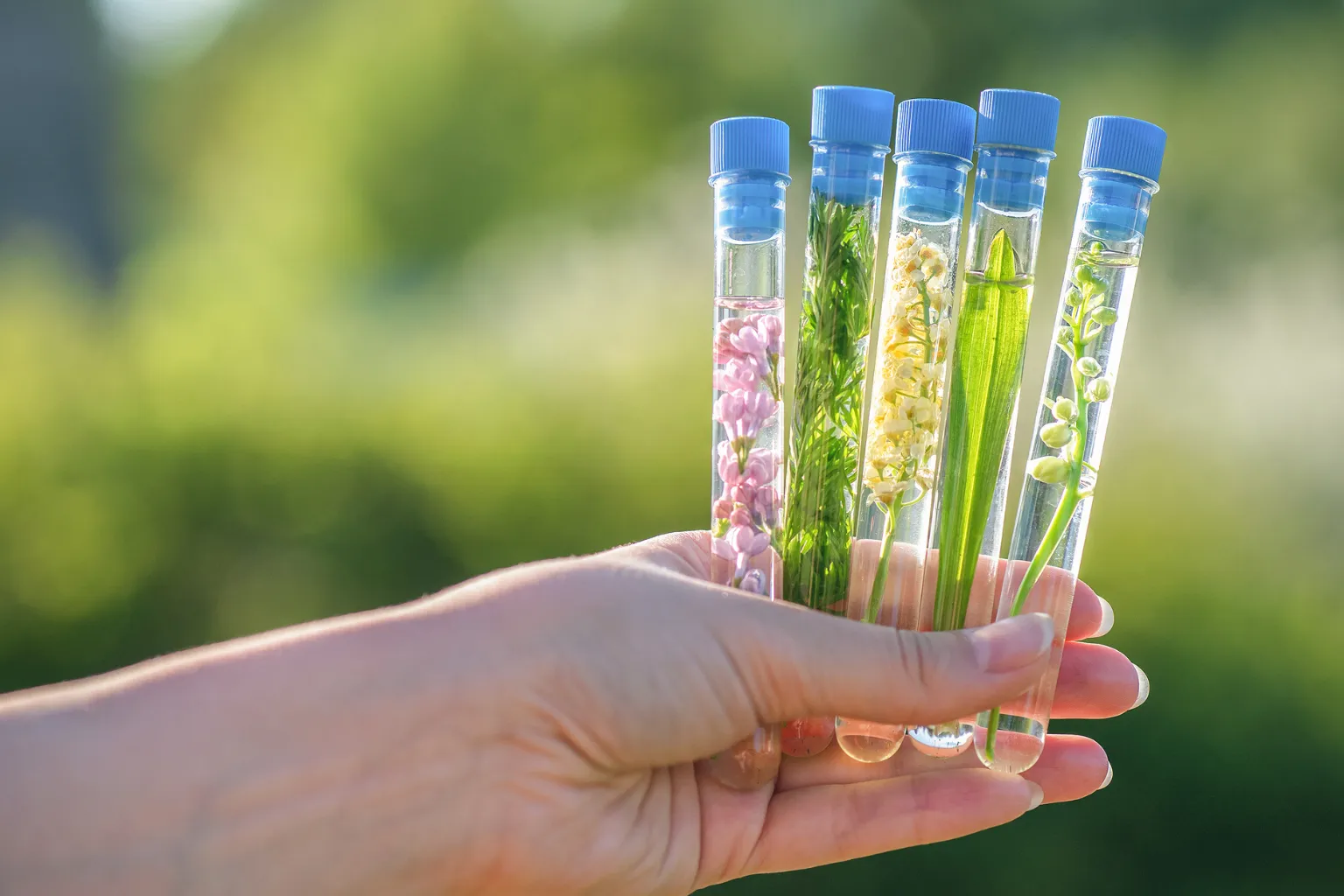Botany deals with the study of plants, including their structure, properties and biochemical processes. It also includes plant classification, study of plant diseases and interactions with the environment. Botany includes the studies like how plants grow and adopt to their environment, also includes other areas like forestry, horticulture, agriculture, conservation and plant ecology. Botany is the key to the development of biofuels such as biomass and methane gas that are used as alternatives to fossil fuels and also important in the area of economic productivity of various crops. As with other life forms, plant life can be studied from different perspectives, from the molecular, genetic and biochemical level through organelles, cells, tissues, organs, individuals, plant populations, and communities of plants. At each of these levels, a botanist might be concerned with the classification (taxonomy), structure (anatomy and morphology), or function (physiology) of plant life. The practical applications and effective methodologies of botany generate curiosity. Keeping all these things in mind the M.Sc. Botany program has been designed to allow students to develop logical thinking, reasoning, and intellectual thinking and providing most exciting and rewarding jobs in the future. DIBNS is offering a flexible program structure while ensuring students acquire comprehensive knowledge of the subject. The courses run is as per the guidelines of the New Education Policy, NEP–2020.

Duration
- 2 years
Eligibility
- B Sc with CBZ with minimum 45% marks in aggregate.
Future Prospects
Research Scientist
• Research Associate
• Teacher
• Horti and floriculture
• Remote Sensing and GIS
• Ecologist
• Science Writer
Botany, plant science(s), or plant biology is a branch of biology that involves the scientific study of plant life. Botany covers a wide range of scientific disciplines including structure, growth, reproduction, metabolism, development, diseases, chemical properties, and evolutionary relationships among taxonomic groups. Botany began with early human efforts to identify edible, medicinal and poisonous plants, making it one of the oldest sciences. Today botanists study over 550,000 species of living organisms.
As with other life forms in biology, plant life can be studied from different perspectives, from the molecular, genetic and biochemical level through organelles, cells, tissues, organs, individuals, plant populations, and communities of plants. At each of these levels a botanist might be concerned with the classification (taxonomy), structure (anatomy and morphology), or function (physiology) of plant life.
The study of plants is vital because they are a fundamental part of life on Earth, which generates the oxygen, food, fibres, fuel and medicine that allow humans and other life forms to exist. Through photosynthesis, plants absorb carbon dioxide, a greenhouse gas that in large amounts can affect global climate. Additionally, they prevent soil erosion and are influential in the water cycle. A good understanding of plants is crucial to the future of human societies as it allows us to:
• Produce food to feed an expanding population
• Understand fundamental life processes
• Produce medicine and materials to treat diseases and other ailments
• Understand environmental changes more clearly
Further Information
An Autonomous College


 Apply Now
Apply Now
 Fee Payment
Fee Payment
 Admission
Admission
 Enquiry
Enquiry
 Quick Links
Quick Links